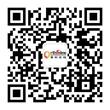Does a Directive to an Internet Site Enhance the Doctor-Patient Interaction?
第一作者:Khin-Kyemon Aung
2015-08-31 我要说
Khin-Kyemon Aung,Wei Kang Wu,Andrew Tokumi,Phoebe Kuo,Charles S. Day
Background: Sixty-two percent of patients would like their doctor to recommend a specific web site to find health information, but only 3% of patients receive such recommendations. We investigated whether providing patients with an Internet web-site link recommended by their physician would improve patient knowledge and satisfaction. Our hypothesis was that directing patients to a reliable web site would improve both.
Methods: Sixty patients with a new diagnosis of carpal tunnel syndrome were prospectively randomized into two groups. Twenty-three patients in the control group had a traditional physician office visit and received standard care for carpal tunnel syndrome. Thirty-seven patients in the treatment group received a handout that directed them to the American Society for Surgery of the Hand (ASSH) web page on carpal tunnel syndrome in addition to the standard care provided in the office visit. Patients later completed a ten-question true-or-false knowledge questionnaire and a six-item satisfaction survey. Differences in scores were analyzed using two-sample t tests.
Results: Less than half (48%) of the patients who were given the Internet directive reported that they had visited the recommended web site. The mean scores on the knowledge assessment (6.84 of 10 for the treatment group and 6.96 of 10 for the control group) and the satisfaction survey (4.49 of 5 for the treatment group and 4.43 of 5 for the control group) were similar for both groups. The mean score for knowledge was similar for the patients who had used the ASSH web site and for those who had not (6.89 and 6.97 respectively). Moreover, compared with patients who had not used the Internet at all to learn about carpal tunnel syndrome, patients who used the Internet scored 6.6% better (mean score, 7.14 for those who used the Internet compared with 6.70 for those who had not; p > 0.05). Regardless of Internet usage, most patients scored well on the knowledge assessment and reported a high level of satisfaction.
Conclusions: Whether the patient was given a handout or had visited the ASSH or other Internet web sites, the knowledge and satisfaction scores for all patients were similar. Since the physician was the common denominator in both groups, the results indicate that the patient-physician relationship may be more valuable than the Internet in providing patient education.





 京公网安备11010502051256号
京公网安备11010502051256号